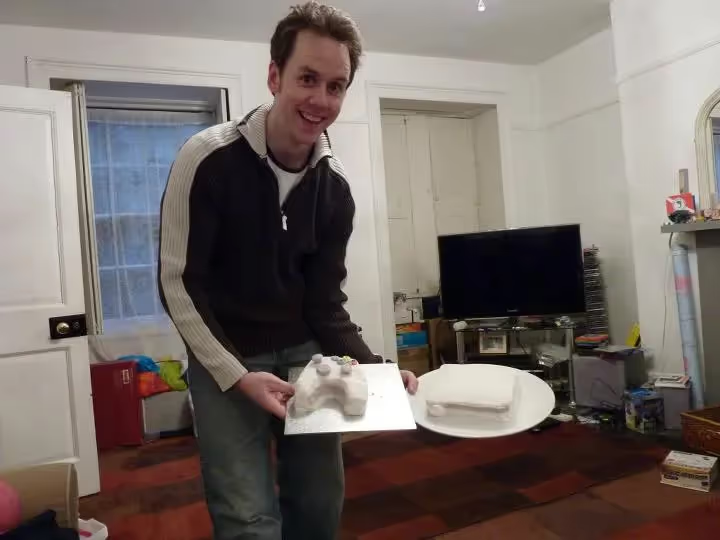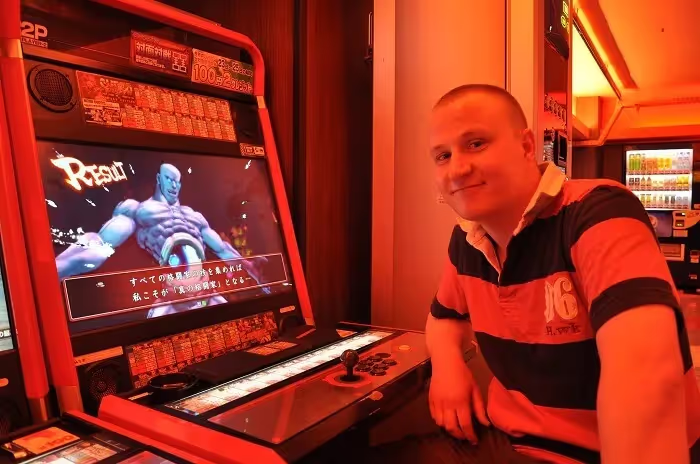I know all the games you play
This review contains potential SPOILERS for the previous three episodes. The reviews for other episodes can be found here:
Sean Diaz knows how to take a serious beating. In the penultimate episode of Life Is Strange 2 — at least, on my playthrough — he must have been smacked down on at least three occasions, with only a few cuts to show for it. Then again, Dontnod probably thought it would be a little harsh to give him a serious black eye, given he only has one left. That’s right: if you wondered what the aftermath of Wastelands would be following Daniel’s tempestuous tantrum, here’s your answer. Pirate fans, rejoice!

Life Is Strange fans should also rejoice because Faith is a return to form for a season which stuttered badly after its brilliant first chapter. There are so many great things going on in these two hours that it’s difficult to pick a highlight. Let’s start with one of my favourites: a lack of screen time for Daniel. It might seem odd that having one of the central characters absent for three-quarters of the game raises its quality, but Daniel has been getting progressively more annoying since discovering he had powers back in Roads. “I love him. Even his whining,” says Sean. I disagree. Daniel may only be ten years old, but some of the things he said and the actions he took in previous episodes stretched credibility far more than his telekinesis.
Making Daniel the unwitting centre of a cult was therefore a stroke of genius by the game’s writers. Not only does it give Sean the necessary motivation to find his brother, it lets them tie in threads from earlier chapters such as the appearance of the Diaz brothers’ mother, Karen. It also feels natural — and depressingly on point — to see Daniel exploited by religious folk trying to cash in on his “miracle” abilities.

The first episode came under fire from certain quarters for its overt social commentary which took aim at the injustice shown to Hispanics in the US. That criticism appeared to have dampened the enthusiasm of Dontnod’s writing team who failed to say anything much of note in the following two episodes. Not so here. Themes such as religious brainwashing, homophobia, conversion therapy and child abuse are all tackled to varying degrees in an unflinching manner and are all the better for it. In comparison to prior busywork such as trimming marijuana plants or moving water barrels around, Faith has a lot to say and a lot less for the player to actually do, yet it feels like a tighter, faster and more enjoyable experience overall.
I also need to talk about Sean and Daniel’s mother. Turning up on the scene with a bad-ass Teri Bauer haircut and a brusque attitude, Karen Diaz is unapologetic for leaving the family and ghosting her boys. While her reasoning for doing so appears selfish on the surface, her brutally honest take on motherhood is something we don’t see enough of in media, let alone narrative gaming. Yet her desire to not be a stereotypical wife, mother and homemaker and the impact of her choices are handled sensitively enough to allow the player to decide how Sean should respond to them. Not all women need or want children, and not all those that have them are prepared for the journey ahead, but this subject is tackled sensitively on both sides while giving room to let Karen explain her actions.

Dontnod handles Karen’s departure and subsequent reappearance in the same mature manner with which it covers other themes. Racism in particular has dogged the brothers since the very beginning and no punches are pulled here, either. An early encounter sees Sean facing off to two men demanding he says things like “This is not my country” in Spanish. Refusing to do so leads to the consequences you might expect, yet as a player I felt outraged and proud enough on his behalf not to give in to their racist demands. It makes for uncomfortable playing, and there are many similar instances in Faith, but none of them feel insincere or on the nose. Life Is Strange is at its best when it quietly and effectively reflects the darkest edges of society, which is why this fourth episode works so well.

Aside from a much lighter focus on gameplay, which may prove to be a bugbear for some, the game only really stumbles in its final scene. Here, poor pacing leads to a bizarre scenario involving numerous characters just standing around as their respective worlds fall to pieces. The final decision is heart-wrenching, however, and the wording of the binary options — of which there are multiple scattered throughout the game this time — makes me wary about episode five, as well as feeling a bit manipulated. Reading through the other potential choices I could have made after the credits rolled, it felt like I wasn’t given enough information to make a properly informed decision. Still, like Sean, I have to live with those consequences in the final chapter. With the brothers reunited, it genuinely feels like all bets are off for the finale — a happy ending might be something they deserve, but as Dontnod has pointed out throughout this series, the world doesn’t always give you what you want.
You can subscribe to Jump Chat Roll on your favourite podcast players including:
Let us know in the comments if you enjoyed this podcast, and if there are any topics you'd like to hear us tackle in future episodes!



